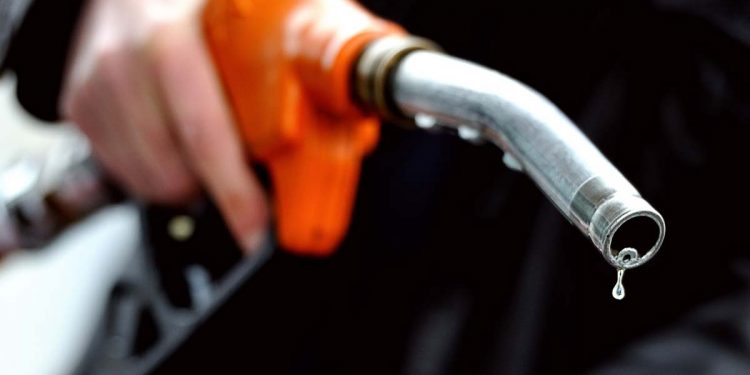Bharat Jhunjhunwala
Reserve Bank of India Governor Shaktikanta Das has said that bringing petroleum products under GST will lead to initial sacrifices but will beget benefits in the long run. A report of the State Bank of India has calculated that the initial loss of revenue will be to the tune of `1 lakh crore. At present the Union government collects excise duty and the states collect VAT or Sales Tax on the price of oil after adding excise duty. This leads to a cascading effect because an increase in excise duty leads to automatic increase in VAT as well. Bringing petroleum products under GST will merge the two taxes and then there shall not occur any cascading effect. The question, however, remains wherefrom will the loss of `1 lakh crore revenue be made up? The `1 lakh crore presently being collected from oil will have to be collected from increasing GST collection from cloth, paper, bikes and other items. In other words, bringing petroleum products under GST will not lead to a reduction of taxation. It will only lead to shifting of tax from petroleum to other commodities. The government will have to decide whether to collect the tax from oil or from cloth and paper.
It needs to be noted that we import 85 per cent of the oil consumed by us. Thus, reduction of tax on oil will lead to lower price, increased imports and will challenge our economic sovereignty. Instead of increasing, we need to reduce our consumption of oil so that we are less dependent on imports. Thus reduction of tax on oil as proposed by bringing it under GST will push us in the opposite direction and make us more dependent on imports.
In this backdrop we need to understand the statement made by Petroleum Minister Dharmendra Pradhan that bringing oil under GST will lead to the development of the oil sector. Indeed the reduction of price of oil will lead to higher consumption. Instead of installing solar panels, an industrialist may find it profitable to install a diesel generator. The question, however, is whether we should seek such development of the oil sector or we should, instead, seek the development of the solar energy sector? As said above, increased consumption of oil will be counterproductive. We should instead aim for improving the quality of oil consumption. Petroleum may be used only in such locations and uses that cannot be energized by alternative sources of energy such as solar or wind power. For example, I had purchased a small 500 watt petrol generator for my house in the eighties. At that time the solar panels were very expensive and not a viable option. Today, I have installed a 240 watt solar panel instead because solar panels have become relatively cheap while the price of petrol has gone up. The use of petroleum is justified only for such uses that cannot be served by other domestic and renewable sources of energy such as transporting goods to remote areas.
This much is true that bringing oil under GST will lead to the same price of oil in the entire country. An industrialist will not have to consider the price of oil while making a decision to establish a factory. This will lead to greater efficiency in allocation of resources. At the same time, this will remove the autonomy of the states in deciding the VAT collected on oil by them. At present some states collect taxes at a higher rate and use the revenues for securing public good such as forest conservation, water harvesting, vaccination or providing better law and order. Other states collect low VAT on oil. Their logic is that low VAT and low price of oil will encourage industrialists to establish factories in their state. The people will have higher disposable income and attain higher standard of living as well. Both considerations are justified. Welfare is obtained by high taxes and higher expenditures on public facilities; as well as by lower taxes and more encouragement to businesses. However, the people of a state that spends money efficiently will be benefitted by collecting high VAT; while the people of a state that spends money inefficiently will be at a loss by higher VAT. Thus, autonomy of VAT acts as an incentive for states to spend efficiently. The state government can explain to its taxpayers that they are getting benefits from the higher expenditures. Thus, autonomy acts as an incentive for states to spend money efficiently.
The states today have freedom to choose which of these policies they will adopt. Bringing oil under GST will end this autonomy of states and remove the incentive of efficiency.
Further there is a crisis in the making. The Union government had estimated that the revenue from GST will increase by 14 per cent every year. Accordingly, it had promised the states that it would compensate them if their share of GST will increase by less than 14 per cent. This compensation is to be paid for the first five years of GST ending on June 30, 2022. The states will have to stand on their own feet after that time. The actual increase in GST revenues has been about five per cent per year. There exists today a shortfall of nine per cent from the estimated 14 per cent increase. Thus, on June 30, 2022 the states will see a huge drop in their revenues. The receipt will decline on that date because the actual GST collections have risen only by about 5 per cent. In this situation the states will scramble to raise additional revenues. One obvious source would be higher VAT on petroleum products. Bringing oil under GST will prevent the states from raising revenues from this source and cause much pain.
The two main points are that bringing oil under GST will lead to lower prices and higher consumption of oil and the government will have to collect the same revenue by imposing higher taxes on other commodities. The resulting higher consumption of oil will make us more dependent on imports and affect our economic sovereignty. Secondly, the reduced autonomy of the states will act as a disincentive for them to attain efficiency in expenditures.
The writer is a former Professor of Economics at IIM Bangalore. Views are personal.







































